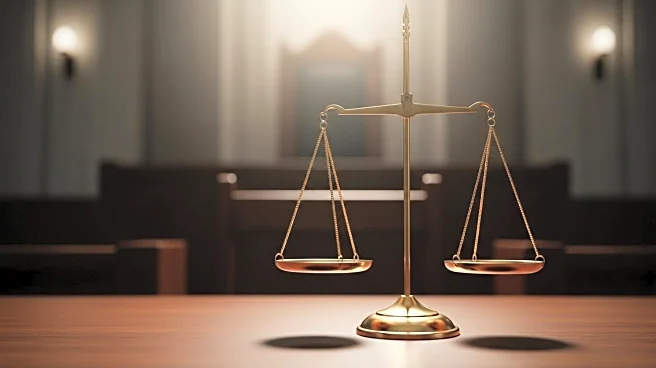What's Happening?
The Supreme Court is set to hear Callais v. Landry, a pivotal case concerning Louisiana's congressional redistricting plan. The case challenges the state's 2024 redistricting plan, known as Senate Bill 8 (SB 8), which created a second majority-Black district. Plaintiffs argue that this plan constitutes an unconstitutional racial gerrymander, violating the Equal Protection Clause of the Fourteenth Amendment. The case has gained attention due to one plaintiff, Albert 'Skip' Caissie Jr., who was unaware of his involvement until contacted by reporters. The lawsuit, driven by advocacy lawyers, questions the balance between the Voting Rights Act and constitutional principles of equal protection.
Why It's Important?
This case is significant as it could redefine the extent to which states can consider race in drawing political maps. The outcome will influence voting power and congressional representation, not only in Louisiana but potentially across the United States. The decision will test the balance between ensuring fair representation for minority groups and adhering to constitutional limits on race-based redistricting. The case highlights the ongoing debate over majority-minority districts and their role in American democracy, with implications for future redistricting efforts and the protection of voting rights.
What's Next?
The Supreme Court's decision, expected later this term, will determine whether Louisiana must redraw its congressional map. The ruling could set a national precedent on the limits of race-conscious redistricting, impacting how states across the country approach the creation of electoral districts. Stakeholders, including civil rights organizations and state governments, are closely watching the case, as it may influence future legal challenges and legislative actions related to voting rights and representation.
Beyond the Headlines
The case underscores the role of advocacy lawyers in shaping major constitutional test cases, often involving plaintiffs who are not directly engaged in the legal process. This highlights broader questions about citizen involvement in legal battles that can redefine national policies. The anonymity of the plaintiffs in Callais v. Landry reflects a trend where legal strategies are driven by organizations seeking specific outcomes, rather than by individuals who feel directly harmed.










